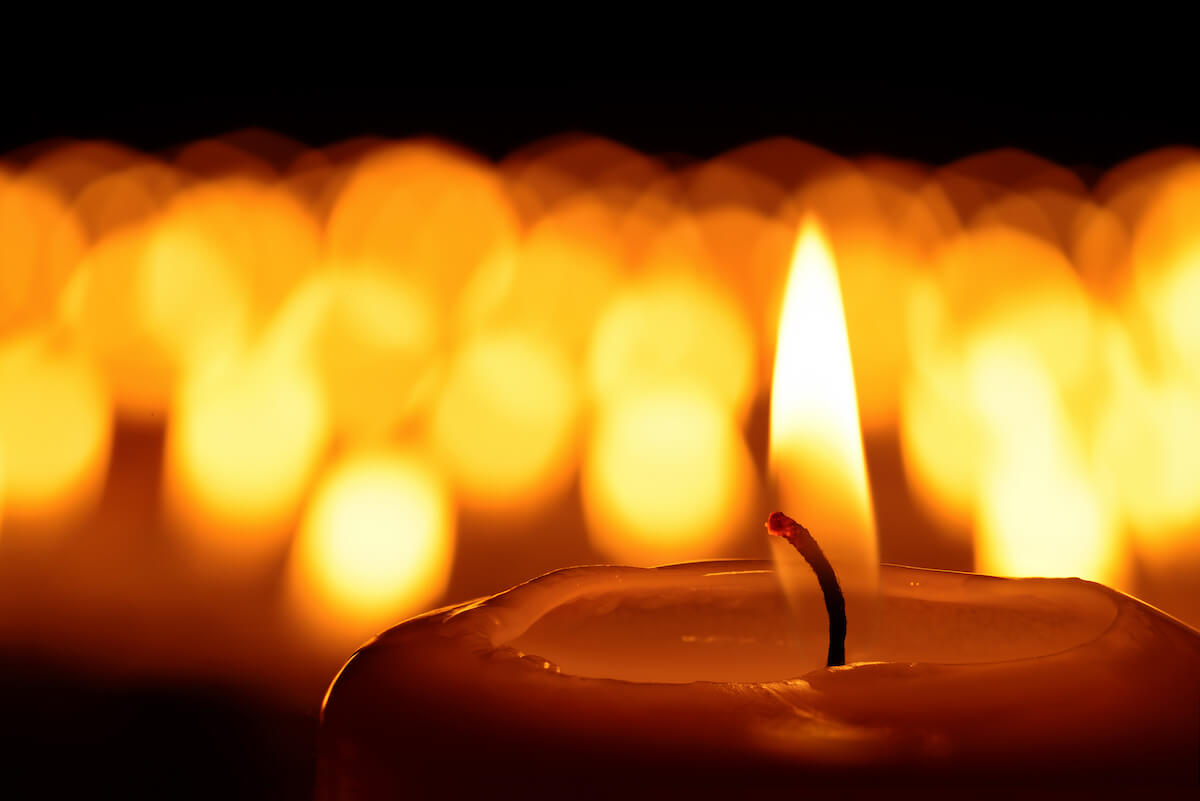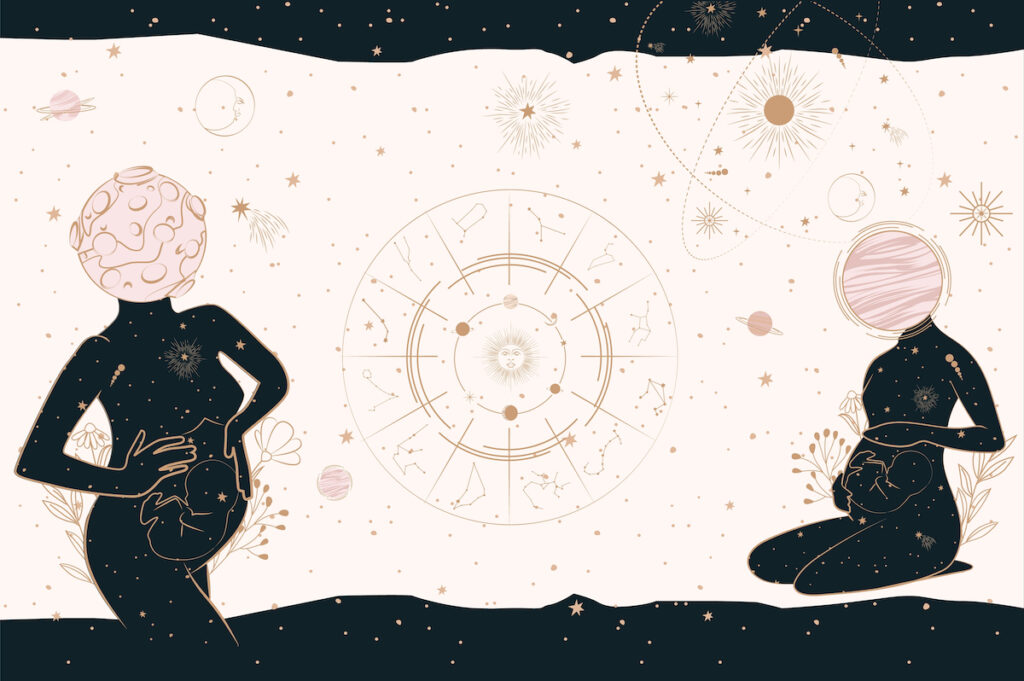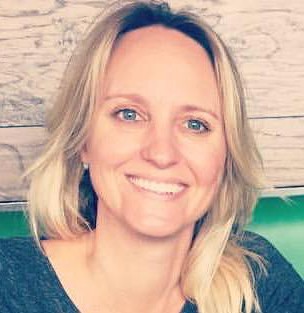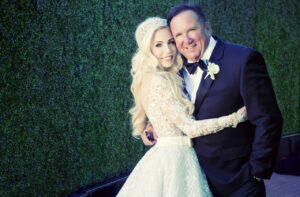
I've been writing about loss and grieving for quite some time.
My first brush with loss was when my father passed away when I was 10-years-old. He had a heart attack and died unexpectedly.
And then, I watched my mom take her last breaths six years ago after a bout with cancer.
It really didn't matter whether I was the 10-year-old who lost her father out of the blue or the 38-year-old who watched her mom fight the slow warrior's battle with terminal cancer — nothing prepares you for the moment you have to say goodbye... or the days that follow.
You can't get around the moments you expect they will come walking back in the door or call you to see how you are. And of course, the moments you pick up the phone to call them and realize you can't.
But thankfully, you do eventually find healing. It's possible to regain balance again and live an inspired life.
My experiences have made certain truths around healing stand out, and I'm going to share them with you in the following paragraphs.
Just note — we all process things differently, and I honor your process just as much as my own:
#1 - Acceptance Is an Art
Learning to accept the death of a loved one takes time. And to be perfectly honest, grief never fully ends. I've learned to surrender to the truth that it will never fully be over — and it's okay.
There will be times something significant will happen and you want to share it with your loved one and sob at the reality that you can't. You'll feel alone and wish you could lean on them for support, but it won't be possible.
For me, the secret to my healing is just to accept how I'm feeling and allow in the moment. If I have to cry my eyes out, I will. If I need to call someone and share my grief, I will.
Sometimes I will even write my mom a little note and then write one back from her with an affirmation. She lives so deeply within my being that I can hear her whispers.
So I try to listen.
#2 - Don't Isolate
About six months after my mom died, I was sitting in my home and I realized that I hadn't seen barely anyone outside of work.
I would go home, fix myself some dinner, and get lost in my own world. I'm not a big drinker at all, but I would indulge in a glass or two of wine far more often than I ever did before.
I was obviously depressed and isolating. Luckily, I noticed this and started to make some changes. I met a new group of friends, started taking regular hikes, and said yes to going out when I normally would have said no.
There is a time when you have to get out and reengage in life. If you need help with this, please seek it. It's vital you not get stuck.
#3 - Consider Joining a Grief Support Group
I’m a part of a group online of women who have lost their moms. It's such a powerful outlet. I love to read the posts they share about what they're going through, and at times I offer support to those who feel lost.
Sometimes it's a woman sharing how she feels right after her mom died, and other times it's someone whose mother died 18-years-earlier. It's important to know that there are other people going through similar situations and emotions.
Community makes us stronger and more able to face the challenges we're facing. There are also great grieving retreats that I've heard are amazing.
#4 - Talk to a Grief Counselor
Think about talking to a grief counselor/therapist. Sometimes we can all be hesitant to ask for help when we really need it. Thankfully, there are some amazing professions who can get us pointed in the right direction.
I ended up seeing one in my 20s to deal with my issues surrounding my father dying when I was 10. Given what I found out about therapy, I wish I would have seen someone when I was younger.
#5 - Let go
Grieving experts have written a lot about what happens when we don't let go of someone who has died. Of course, it's important to never let go of their memory, but getting stuck is a whole other issue.
I'll never forget a woman telling the story of her son that died. She shared the experience on the Oprah show of all places, and Gary Zukav (an amazing healer) told her that if she held on too tightly to the death of her child, she would miss out on the lives of her other children. He helped her see that living in grief can completely limit our connection to the present moment.
I was lucky enough to find the video for you. Please see:
So there's a balance that we have to find — no matter how tragically or unexpectedly someone died.
We are so lucky to be living and breathing, as one day it will all end — for me, you and everyone we know. We have to let go and embrace the beauty that is right in front of our noses.
Where my mom and dad are concerned, I KNOW they would want me to live a life so full and beautiful — even though they aren't here to enjoy it with me.
We have to keep living and celebrate life in honor of those who are no longer here with us! If you think about it, it's a gift we can give to them. A full and vibrant life full of using our talents, giving, and loving.
#6 - Write Down How You Feel
I find that writing is one of the most important part of my recovery process. I have written down feelings the feelings I had as I watched my mom lose her battle with cancer, how I felt right after, how I've felt as time has progressed.
You can also do things like make scrapbooks and photo books in memory of them. Anything that helps you creatively push through the loss and be able to release the feelings you have deep down inside.
Last Words
If you're reading my words, I'm guessing you're dealing with loss in some form. Please know that I'm thinking of you and hoping you will find peace and strength.
It's so hard to understand how one of your favorite human beings can be here one moment and gone the next. It doesn't matter how many times I (or anyone else) tells you that they will live in your heart forever.
I was told that several times after my mom died, but when the lights went out and I was lying in bed trying to adjust to life without her, tears would flow — so much so that I sometimes didn't think I had any tears left.
But, I can say it does get better. And I'm here if you need some support. Please email editor@luvey.com, and I'll respond.





